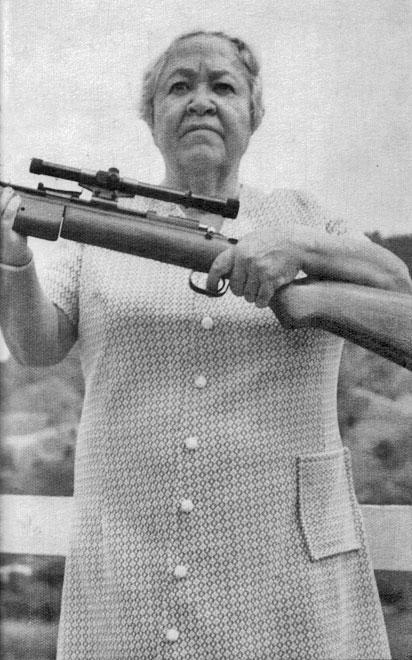For Women’s Day, by Kathleen Harris from Films for Action:
Nadezhda Krupskaya
Many people know Nadezhda Krupskaya simply as Vladimir Lenin’s wife, but Nadezhda was a Bolshevik revolutionary and politician in her own right. She was heavily involved in a variety of political activities, including serving as the Soviet Union’s Deputy Minister of Education from 1929 until her death in 1939, and a number of educational pursuits. Prior to the revolution, she served as secretary of the Iskra group, managing continent-wide correspondence, much of which had to be decoded. After the revolution, she dedicated her life to improving education opportunities for workers and peasants, for example by striving to make libraries available to everyone.
Petra Herrera
During the Mexican Revolution, female soldiers known as soldaderas went into combat along with the men although they often faced abuse. One of the most well-known of the soldaderas was Petra Herrera, who disguised her gender and went by the name “Pedro Herrera”. As Pedro, she established her reputation by demonstrating exemplary leadership (and blowing up bridges) and was able to reveal her gender in time. She participated in the second battle of Torreón on May 30, 1914 along with about 400 other women, even being named by some as being deserving of full credit for the battle. Unfortunately, Pancho Villa was likely unwilling to give credit to a woman and did not promote her to General. In response, Petra left Villa’s forces and formed her own all-woman brigade.
Nwanyeruwa
Nwanyeruwa, an Igbo woman in Nigeria, sparked a short war that is often called the first major challenge to British authority in West Africa during the colonial period. On November 18, 1929, an argument between Nwanyeruwa and a census man named Mark Emereuwa broke out after he told her to “count her goats, sheep and people.” Understanding this to mean she would be taxed (traditionally, women were not charged taxes), she discussed the situation with the other women and protests, deemed the Women’s War, began to occur over the course of two months. About 25,000 women all over the region were involved, protesting both the looming tax changes and the unrestricted power of the Warrant Chiefs. In the end, women’s position were greatly improved, with the British dropping their tax plans, as well as the forced resignation of many Warrant Chiefs.
Sophie Scholl
German revolutionary Sophie Scholl was a founding member of the non-violent anti-Nazi resistance group The White Rose, which advocated for active resistance to Hitler’s regime through an anonymous leaflet and graffiti campaign. In February of 1943, she and other members were arrested for handing out leaflets at the University of Munich and sentenced to death by guillotine. Copies of the leaflet, retitled The Manifesto of the Students of Munich, were smuggled out of the country and millions were air-dropped over Germany by Allied forces later that year.
Blanca Canales
Blanca Canales was a Puerto Rican Nationalist who helped organize the Daughters of Freedom, the women’s branch of the Puerto Rican Nationalist Party. She was one of the few women in history to have led a revolt against the United States, known as the Jayuya Uprising. In 1948, a severely restricting bill known as the Gag Bill, or Law 53, was introduced that made it a crime to print, publish, sell, or exhibit any material intended to paralyze or destroy the insular government. In response, the Nationalists starting planning armed revolution. On October 30, 1950, Blanca and others took up arms which she had stored in her home and marched into the town of Jayuya, taking over the police station, burning down the post office, cutting the telephone wires, and raising the Puerto Rican flag in defiance of the Gag Law. As a result, the US President declared martial law and ordered Army and Air Force attacks on the town. The Nationalists held on for awhile, but were arrested and sentenced to life in prison after 3 days. Much of Jayuya was destroyed, and the incident was not fairly covered by US media, with the US President even saying it was “an incident between Puerto Ricans.”
Asmaa Mahfouz
Asmaa Mahfouz is a modern-day revolutionary who is credited with sparking the January 2011 uprising in Egypt through a video blog post encouraging others to join her in protest in Tahrir Square. She is considered one of the leaders of the Egyptian Revolution and is a prominent member of Egypt’s Coalition of the Youth of the Revolution.







Leave a Reply